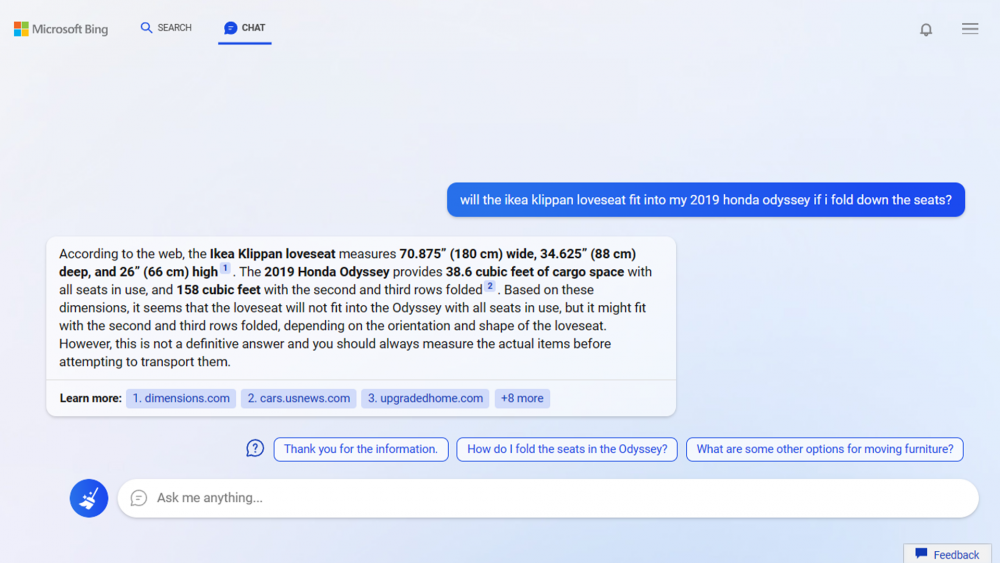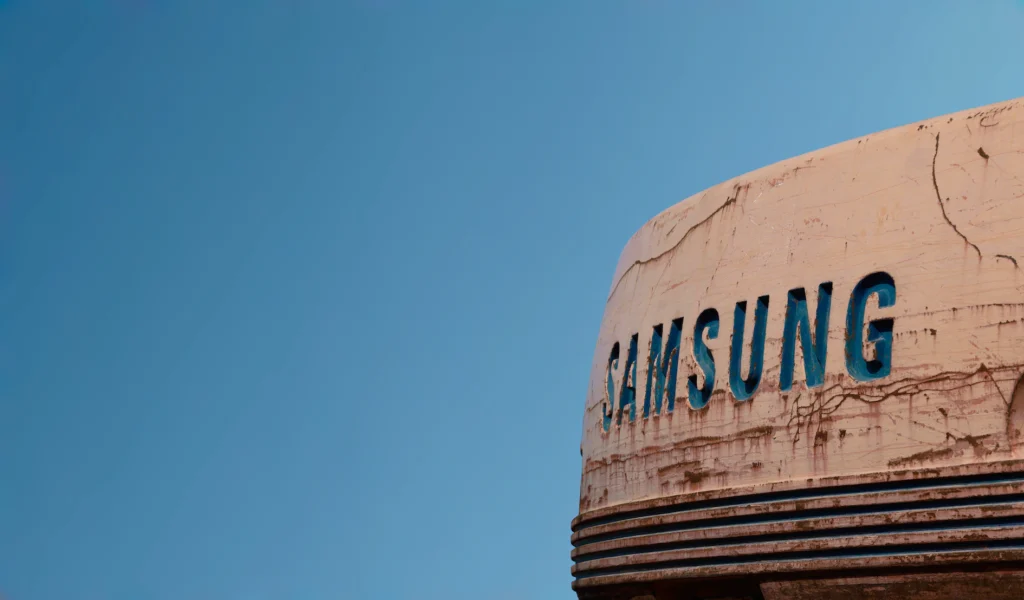The first smartphone manufacturer intrigued by the AI built into Microsoft’s search engine
Samsung is considering dropping Google as the default search engine on Galaxy smartphones and tablets in favour of Bing. The idea obviously lit a red light in Mountain View because the possibility of losing an ally like Samsung could upset the advertising market and Google’s own position of dominance. The reason lies in the latest version of Microsoft’s search engine, which has integrated ChatGTP to offer more extensive, effective and complete answers to users’ queries. What has the world’s leading smartphone manufacturer reeling is artificial intelligence, precisely the difference between Microsoft and Google on the ability to ride the wave triggered by the latest version of the chatbot developed by OpenAI.
Google’s dominance under threat
Samsung‘s moment of reflection was reported by the New York Times, with Microsoft looking forward to paying the Koreans a rich cheque to land on their smartphones and tablets. Even in the absence of official numbers, we know that Big G guarantees a hefty sum to the manufacturer for being the search engine that all consumers use when they buy a new Galaxy mobile device.
For its part, Google, in this way, secures revenues of more than $3 billion per year, not to mention that the data it comes into possession of also proves valuable elsewhere in tailoring ads and in dealing with advertisers. The practice is also commonplace with Apple, to which Google guaranteed $1 billion to be the search engine for iPhone and iPad the moment users opened Safari. This was back in 2014, with the deal expected to bring Apple around $15 billion in recent years.


The importance of Chat-GPT
Samsung’s hesitancy would also derive partly from Google’s difficulties in replicating the investments of Microsoft, which, after $1 billion in early-stage support, injected another $10 billion into OpenAI to get its hands on Chat-GPT‘s text capabilities. The integration of generative AI into its search engine demonstrates its willingness to push into the segment, getting the first mover on what is designated as the next golden goose of the tech industry.
The enormous space Chat-GPT has taken in the public debate has convinced Google that it must respond in the same way, with Bard and the Magi project, with the latter expected to rise to the status of an ecosystem capable of autonomously identifying content on the web to provide different and more complete answers than the current search engine. The problem is that development is proceeding slowly and poorly because, in addition to redesigning Google Search and Chrome, Bard is currently useless and a liar to Big G employees. In any case, Google’s roadmap is to have 1 million US users testing Magi by the summer and 30 million by the end of the year.


Microsoft is ready to do anything for Samsung
Those eagerly waiting for Samsung to lift its reservations are Microsoft, ready to offer the Koreans any amount of money to make Bing the default search engine on every Galaxy. “Microsoft should accept any kind of request because Samsung is dominant in the Android ecosystem, with a very high market share on a global scale,” analyst Rishi Jaluria told Insider. In the usual money calling money perspective, every point of share gained in the search advertising market opens up revenue opportunities of up to $2 billion for Microsoft, as suggested in recent weeks by Philippe Ockenden, vice president of finance at the Satya Nadella-led company.
The eventual arrival of Samsung mobile devices would be an exceptional blow for Microsoft, which, unlike Google, does not have an operating system for smartphones. We shall see, therefore, what will happen on a hot front also because it is linked to progress in AI, bearing in mind, however, a couple of important numbers: Bing exceeded 100 million daily active users for the first time in March, following the release of Bing Chat on 7 February, while according to StatCounter Google holds more than 93% of the global search engine market.



